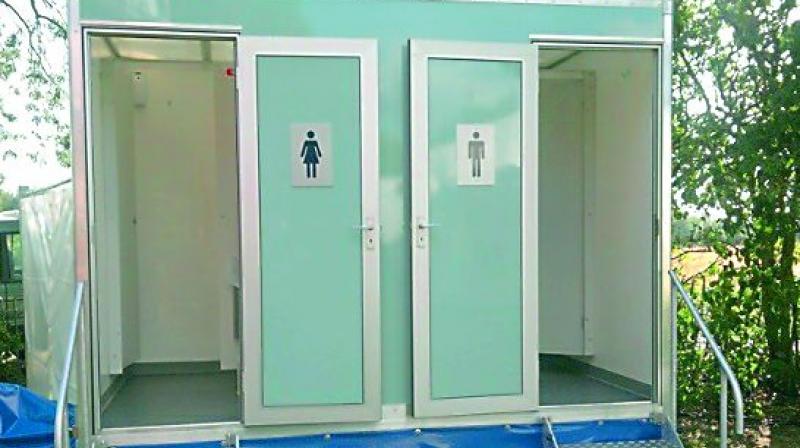Thiruvananthapuram: Poser on toilet mapping expense

Thiruvananthapuram: Public toilets in Thiruvananthapuram have been mapped by an agency called Quality Council of India as part of Swachh Bharat Mission’s Google Map Toilet Locator project, for a fee of Rs 1.69 lakh. However, at a time when most maps are crowd-sourced for free, was this an unnecessary expenditure? For a city with a population of two to ten lakhs, QCI charges Rs 1.8 lakh. QCI had charged Thiruvananthapuram Corporation, with a population of over nine lakhs, Rs 1.44 lakh, according to Corporation officials.
This would cover their travel and accommodation of three officials, the toilet locator app, administration expenses and the help desk. The rest was GST. The data of toilets was generated by Corporation’s health wing. Now compare this to ‘Kakkoos’ app, developed by a software firm called Beacon Infotech and designed by a collective of urban designers in the city, ‘Recycle Bin’, for free.
The app not only lists over 70 toilets in the city but offers reviews – all user-generated, free data.
The Swachh toilet locator lists 150 toilets in the city. It will go live on Google maps in about 20 days. Since Google verifies the data it is more reliable, says QCI officials. However, Ganga Dileep C., founder, Recycle Bin, says, “Many have said that crowd-sourced information would be inaccurate. However, Wikipedia, a platform built entirely on crowdsourcing, is considered highly reliable.”
There is also another issue with using Google as a platform for uploading any data, according to Satish Babu, founding director, ICFOSS. “Google can, at best, give you the ability to use some of the information on an Android device, but not all, unlike an open source software like OpenStreetMap,” he says. In 2010, he was part of a group which trained people to use Google Map Maker.
The tool, which allowed everyone to map neighbourhood roads was discontinued once Google got all the data, they discontinued the tool itself. Google gets free data, which it can choose to withhold. Moreover, according to open software activist Santhosh Thottingal, Google can make money indirectly, as more traffic to the site would mean more people to watch its ads.

